Queerness and Gender
Zsófi Rebeka Kozma: Welcome to PUHA podcast, which stands for Performative Unity in the Hungarian Arts, produced for HowlRound Theatre Commons, a free and open platform for theatremakers worldwide. We're your hosts, Zsófi and Bíborka.
Bíborka Béres: So, welcome everyone. This is the second episode of the PUHA Podcast, and we're going to talk today about gender and queerness in the performing arts. I'm really, really thrilled. Also, I just want to welcome our guests. Let's go around and you can say your name and say whatever you want to say you do, and then we'll have some more questions for you.
Zsófi: Yes, hi everyone. Welcome to our audience and to our listeners on HowlRound and to our guests. My name is Zsófi, one of the hosts of PUHA Podcast, which stands for the Performative Unity in Hungarian Arts, and it means “soft” in Hungarian.
Gergő Dávid Farkas: My name is Gergő, and… let's not overcomplicate this: I do dance, and I do choreography, and I also think I'm a clubber—I somehow find it important to mention. And I'm not a bartender, but I serve drinks from time to time. Now I stopped, but who knows when I'm going to start again. I love to serve drinks. Yeah. Was there anything else I needed to answer?
Bíborka: I think it's fine for now.
Kemelo Sehlapelo: I'm Kemelo, or Kemmy. I'm a contemporary dancer and performer and poet, and I'm South African, which... yeah. Woo! Go, South Africa! And I'm really excited to be here and to have a conversation with y'all.
Veronika Szabó: Hi everybody. My name is Vera or Veronika, as you wish, and I'm a theatremaker. I'm a clown—a clown doctor in hospitals and care homes, and hopefully on stage too. And I'm a mentor of a wonderful new theatre course which is called Theatre and Performance, where we are trying to introduce performance art and post-dramatic theatremaking into the educational system—until now, not completely legally, but we do it. Thank you.
Zsófi: Thank you, Vera, yes. And I will add that Vera is my mentor, and I am in that course.
Bíborka: Nice. So—
Zsófi: And so—
Bíborka: Excuse me.
Zsófi: Oh. Sorry, Bíborka.
Bíborka: I'm Bíborka. I'm also a host of this thing, and I'm a dancer, performance artist. I sometimes serve food and also do social research to make money and some other stuff as well. So, next question is: What is performance art in one sentence? Go. Yeah, I know it's a tough one, but don't think too much.
Veronika: No, I don't like to think too much. Well, I guess if I just want to describe it in the most wide way, I think it's time, space, and in my words, hopefully a body as well, but that's not always the case in performance art now, but for me, performance art is also with the body, a presence of a body, and this sentence is long. The time and space is not so defined in a narrow way, like such like in theatre. Let's say that for beginning.
Bíborka: Good starter, thank you.
Gergő: All right. Performance art is an artwork that mainly, but not solely, showcases the action of the artist's human body and sometimes the audience's or the viewer's human body. Dot, end of sentence. I tried my best.
Bíborka: You really thought it through. Wow.
Kemelo: Performance art, to me, is kind of reclaiming the space in an authentic way that is kind of free of the inhibitions that a theatre would have.
Bíborka: Something about freedom here, I sense. Yeah. Zsófi, what would you say? Did you already answer this yesterday?
Zsófi: Oh, no, we did not answer this, actually, yesterday.
Bíborka: Okay, so, this is the time.
Zsófi: Yeah. Well, perfect, I guess, to me, now… well, in the last six months it changed a lot. Well, since I've been participating in this course, but it's something… it has to do something with the… just being real in a space which can be a stage or anything, and it has no boundaries of form. It can be video or anything, and it has a very free flow in my head. How about you, Bíborka? I think you didn't answer this yesterday either.
Bíborka: Oh my God, the time has come.
Zsófi: The time—
Bíborka: And I still have no idea.
Zsófi: That's also fine.
Bíborka: No, okay, I have some ideas, but I was thinking of presence, for sure—like some kind of very deep presence. In one aspect of being present, it crosses some boundary. And then, I think it has to do with community and just people coming together to watch or do something together. I think that's very important to me.
Zsófi: Cool. Next question. So, these are kind of like one-sentence intro things, and it's just like a cold shower that you just have to do, and we're very curious about it. So, what is queerness?
Gergő: Oh my God.
Zsófi: Yeah.
Bíborka: Take your time. We can—
Gergő: Okay, no, let's say this. This is maybe… this is going to be a little bit more personal than the previous one.
Zsófi: Perfect.
Gergő: Sometimes it's nice to be personal, but then sometimes I just really enjoy being pragmatic about certain things. But I can… yeah, I don't know. Sometimes I find ease in just going for some Wikipedia shit because it's going to get personal at a certain point anyhow, but then I think it's also nice to set some points in space that we agree on.
Okay, but queerness, I mean, from a personal approach, I think queerness is the word that we either found or created—which I think much rather appropriated—that is then determined to point to a terrain of experiences that we were pushed not to talk about. And now we fight for the space to talk about it. So, it happened plenty of times to me that someone came to me—because I do use the word “queer”. I do use the word “queer” to myself. I'm an active user of the word “queer,” and so people will come to me and tell me, “Define queerness.” And there is this pressure in their voices, and that can make me feel scared. I mean, I could find more literal or structural or pragmatic ways to define queerness than the definition I just provided now, but I question how necessary it is to find one definition to this word.
Zsófi: Yes.
Gergő: Yeah.
Veronika: Yeah, it just really resonates with me, what you just said: Should there be one definition? Because somehow it really narrows down this thing which I think it's very, very liberating, and not just purely limited to sexuality. And very often we use it that way, for me personally as well. I think for me it's one possible journey to practice imagination and that kind of imagination that doesn't limit you to the recent reality that we live in. And to say so that it's only related to binary codes and gender or sexuality, yes, but for me, for example, when I see a queer show, it's not only about that. It's much further and much beyond just that one dimension.
So, for me, I think when I hear or read the definition, for me, as how I perceive queerness, it's much more narrowed down. For me, sometimes queerness is almost like trying to be in a sci-fi world when I don't even think about gender or stuff. I don't know, it's completely different things. Universes, planets; for me, that.
Kemelo: Well, I think they both said what I was feeling. I found myself aggressively agreeing with them. I personally—
Gergő: I love this, aggressively agreeing. “I aggressively agree.”
Kemelo: Yeah, I think for me, it's also personal. I personally, I don't even know what it looks like for me, so I… maybe it means to not define anything. To just be.
Bíborka: Yeah! No, I just love everything that you said because now that I think back to it, every time someone asks me like what you were saying, “Define queer. What is queer?” And I've never given the same answer, and I think that's right. I think it would be worrisome if I did, because I think it is about playfulness, and it's such a term that resists being defined. I think if you pin it down, it just disappears. Yeah. Who are the people of your art? Big question.
Kemelo: Well, I think that for a long time, like when I first wanted to be a dancer or an artist, I always thought to myself: Oh, I want to be in big theatres and performing for really important people and be famous for this and this. And while that's nice—I do love theatres. I love being in them, and I love being on the stages. Actually, when I came here and when I started to delve more into this contemporary dancing, or maybe I'm lucky that I met the people that I did—y'all—I was realizing: Wow, this is also really, really cool to perform for people, the everyday people who maybe wouldn't engage in art period. Or they think it's not necessarily their affinity because of A, B, and C.
Like for example, when we did the climate change event, that was really interesting—especially when it was site-specific work. Because just looking at the audience or passersby, I don't know, it really changed something in me. For some reason, now I think—actually, for that reason mainly, I would like to focus more on doing that kind of work. I'm quite inexperienced in that way, but I would really like to experiment with that type of work. And actually, especially back home, to be honest. I think it could be really interesting, and I also think that it can be even more nuanced just because I am taking up the space.
If, for example, if I decide to do a site-specific work by myself in the middle of Johannesburg, for example, it has multiple layers to it because I will already be taking up space in a place where I'm safe. And so, I'm… that's already a kind of statement that, “Okay, I'm here, regardless of what I'm doing.” But then that's also kind of making not just my voice, but the voice of other women be seen, and I think it's one of the things that is, I feel, at least, is pertinent to the conversation about inequality is that it's this feeling of not being heard and not being seen, because if people don't hear you and see you, they'll just disregard like you don't exist. And I think that's one of the big cruxes of inequality.
So, yeah, I'm hoping to make more art for people that… I don't know, that I'm basing my experience. Like I am them, but also, they perhaps didn't have the same privileges as me, or maybe they did want to say what I'm saying but they couldn't, or they needed to find another way, or I can maybe say that. Not to say that I want to take their voice away but maybe this kind of mutual conversation through performing. I think that's really, really cool. That's what it's about for me.
Veronika: For me, it's complex, because one way, the spaces where we perform really dictates the audience, so I don't feel like I am in the position to decide who am I performing for. That's one thing. The other thing that I think for me was always important, that I want to feel free in my art. I don't want that. That's the biggest influence on my work; who am I performing for? At the same time, I always had the desire and need to meet people—and when I say meet people, I mean like a wide range of people. Therefore, I really did stuff that we have another expression for, let's say community theatre, and for me it was a problematic word. For me, all theatre should be community theatre, but of course we use the word when we work with civilians or when we target a community that it's… maybe this community has less access to theatre or performance art, and then you do stuff with them.
I was always interested in that, and I did it. Maybe what satisfies me in that now, I guess it's my clown work again. In my clown work, I don't know who I meet, so I go in to the hospital and I can meet any kind of people in a hospital, including care homes. And there, spot on, every day I really have to practice, “How do I reach these people? How do I interact with them, or how do I not interact with them and I'm just performing something for them?” Because sometimes it's really not good to interact with people. They just want to watch. It's the same in hospitals too, like in performance spaces. And that's practice for me. I'm practicing with people, whatever we practice. Sometimes we practice talking, sometimes we practice being together in a space in a real way. That practice for me is important; that I can practice my limitations, my patience, with a wide range of people. I really enjoy that. So, for me, that.
Gergő: Yeah. To me, I think this is always a result, and it never is a starting point. I perform to anyone who chooses to come. People should come. Check it out. I mean, but I understand that this work that I’m making is very specific in terms of who is going to be moved by it, and I'm also fine with many people not being moved by it. It's okay. Really. Maybe next time.
Bíborka: Yeah. Yeah, I also kind of just… I'm very curious always who comes. And sometimes I'm not surprised because sometimes it's the same people, but sometimes I'm like, “Oh. Who are you?” Yeah, I don't know, for me, that is part of the experience, and I think it's largely part of improvisation. It's an element of improvisation because you can't predict it. I think my recent pieces, they're really, really personal, or it's kind of like my personal archive.
I did a piece about… not about my orgasm, but I was sort of researching my own orgasm and then this piece emerged. And then I did another one about girlhood or with clay. They are very… I think, like what we talked about earlier, they are pretty abstract or poetic or whatnot. And I don't know. It's interesting because I don't know what people get out of it. I don't even know what I get out of it because it takes days to digest it. And then I'm just always mesmerized about, “Okay, we came together, we watched me doing some stuff with clay, and then now we go home and that's that.” And then, I don't know. I think this is way beyond narratives or these concrete things, like, I don’t know, “I watched this show about LGBTQ things, and now I know that it's about fluidity,” and that's great.
Zsófi: But I think that in the work that I want to make should be welcoming, because I remember this one conversation that I had with a friend. We were in high school, and we were looking at some abstract painting, and she told me, “I'm not the kind of person who understands this,” or something like this. And I was like, “Wow, you immediately distance yourself from any thought that you can have or that can emerge.” And that's when I was like, “Oh. No.” I think, for me, it's also very much about community and bringing people together, like at the climate change thing. In the end, forty people in this space actually read this text together. That's something amazing to me.
Bíborka: Now that you said that, I think one thing that I consider success is when people don't reject, you know? Like: “I think this.” “No.” That's the only bad outcome. I think it's not necessarily… it can be self-defensive. People can have a lot of reasons to distance themselves, but I still think just convincing people to just be soft and be open and just be receptive, I think that's a huge fucking thing. And it's really hard.
Gergő: Yeah.
Veronika: Yep.
Gergő: I completely agree, and I think what you say comes from a really lovely place that I admire and agree with, but then also, I sometimes feel that I don't want to… I guess it's just not something I want to deal with in my own work—at least in the choreographic part. I don't want to think about people rejecting. I don't want to think about… I mean, I think to me it's very similar as when we talk about provocation in Hungary. That also needs two parties, the provoker and the provokee—the provoked. I mean, so many people were provoked by me before I moved abroad that at a certain point, I really believed it. I'm a real provoker, you know? And then I went to Amsterdam, where there was this dude on his bike bringing shitloads of marijuana on his back and no one really gave a fuck about it. And then my painted nails really just faded into the whole scenery. I was really nothing very special there. I was not provoking anyone.
But, even after two fucking years, I sometimes painted my nails. Even after two years, I had hoop earrings, and I felt: Okay, if my motivation would be to provoke people and this is why I'd be doing all these things, I would have probably either stopped because no one feels provoked, obviously, or amped it up to a level where some people to feel. And I just stayed how I was. So, coming back here, I really try not to think about people rejecting this work or people feeling provoked by me because it's… I can have a kiki about it with them. We can have a conversation, it's fine. Let's talk about it when we both feel the energy and we both have the time to do so.
But I also think that it's just nice to do your thing and do your thing the way you want to be doing your thing. And then later on we can talk about it, or there will be another work that you don't feel rejected by. If people go to a theatre or stand in front of an artwork and they try to understand it the same way they try to understand the news in a news site, that's not my fucking job to explain how it's not the way to go with these kinds of things.
Veronika: Yes. And I think, in a way, rejection can be wonderful if it happens because for me that means that, that person had to face something that maybe was not ready for, and maybe never something like that would happen ever in his life, and suddenly this thing, “Oh, I cannot even look at it.” I think that reaction can be very, very interesting.
Gergő: Yep.
Veronika: Also, for me, that, “Oh, what is this limit that I touch upon and why?” And of course, as we said, there can be many reasons why people leave the space—because they have to shit or something. Who knows? I don't like this thing that we try to guess, so—
Bíborka: And then you take it personally.
Veronika: “Oh, have you seen, that guy just left after ten minutes.”
Zsófi: Exactly the time when—
Veronika: “Probably he hated it!” That moment, no. But, when I talk with people and they tell me why they left, or why they didn't like the show, for me, that's wonderful. For example, in my case, I said to you that I wanted to show my sister and my mother Queendom. My mother loved it, and my sister didn't like it at all, and we had such a great conversation afterwards why. And of course that was special, because that was my sister, so I could really talk with her deeply, and we both realized that there were so many things that touched her so deeply that she was not ready to take that thing in, you know? And she said to me that, “I had to push it away at some point from myself because I was not ready for that.”
Gergő: Yeah.
Bíborka: Yeah.
Veronika: And not being ready, it's, I think, great, because then you start to channel it in, or really, in some way, take it in—even when you fear that you will reject.
Bíborka: Yeah, actually, now I don't know. I probably don't agree with myself because rejection is so complicated and so exciting.
Veronika: It is.
Bíborka: Now it just comes to me like, “Okay, I can…” I'm just going to briefly mention two different things which I kind of find really exciting. The first one is, I did this show about my mom who died, and for the most part I'm naked in it. And it's super personal. I spent two months researching it, and then I performed it, and then I sent it to my dad being like, “Hey, I made this show about your ex-wife, my mom, and it's so important to me.” And then he just replied, “Your sister said that you're naked in it. I'm not going to watch it. I think it's wrong and that's it.”
Gergő: Wow.
Bíborka: And then I was like, “Holy shit,” you know? And I still think about it. I can make all these personal things and it's really valid for me as an artist and everything, and then there's this gap. I bridged so many gaps with all the strangers who came and then there's this gap with my own father, which is like, “Holy shit,” you know?
And then, the other thing is, there was a still about this stuff like the Menyecske one with the slurs and the made thing on the street here, so it was part of a festival, like a street festival. And there was a sculpture next to it, which I kind of didn't even notice. It was like some turning mirrors. And I engage with the people who come across in very kind of hyper-masculine or hyper-feminine ways, and I kind of exaggerate it, and yeah.
And then there was this very fancy couple who came with a dog, and they looked very educated. And then I was going up to them wanting to play and stuff and they were just like, “Leave. Leave us alone. Leave us alone.” I was like, “Oh, okay,” and then they were like… anyway, there was a little escalation. And then it turns out that it's their sculpture. And then they told me straight off to just leave, like my performance here is like an offense to them, and they're going to call the police because around their sculpture, it's like their… I don't know, whatever. Copyright? I don't even know. They were just throwing these pseudo-laws at me like, “Get away. We don't want your stuff here. This is provocation,” and whatever. And then I was kind of so fucking proud of myself. I was like, there's this elite scum making the art that I really don't support personally, and they were really, in a way, deeply moved by what I was doing. And I was like, “Okay. That's not that bad after all.” So, yeah, I don't know. Maybe those are important points, meeting points.
Gergő: Of course. Okay, we were talking about how much you know about your audience or if there is a specific group of people you are making your work to—and I might not have an answer for that. But then I also try to think again and again about what the work offers and who can be potentially interested in it. I mean to me, it's very different with the workshop series now and my choreographic work. In the workshop series, what is the goal? This was very important.
I mean, especially with folk dance. We really arrived to this point that there were so many critical articles about it, and we were called pedophiles in one of the news sites. There was this whole chain of regional newspapers in Hungary that took the event, and so there were twenty-something articles in those pages about this event. And so, we found ourselves being very busy with defending our workshop in front of people that are not the target of this workshop. That workshop was made for queer LGBTQ people and allies. And then we were like, we really just needed to propose this question: “Okay, what's the goal of this workshop?” Is this a workshop for the queer community and the folk dance community to meet and get to know each other or is this a workshop for folk dancers to realize that— [indecipherable crosstalk] Oh my God!
Bíborka: Yes, please.
Gergő: Can't wait for that next article to come.
Bíborka: I knew it! I knew it! Sorry I could not resist.
Gergő: No, don't worry about it. And, I mean, no, this workshop has nothing to do with the realities of the folk dance community in 2022. This workshop has to do with folk dance itself, and with the LGBTQIA+ people. So, yeah. Maybe now I'm rethinking the situation again, and I see that the workshop series does have a target audience. Mm-hm. Yeah. My choreographic work still doesn't though. No.
Bíborka: Do you have a vision as an artist working with topics of queerness and gender?
Gergő: Go for it.
Kemelo: You can start.
Veronika: I can just repeat myself that the work I do is representing, mainly I do believe, me. And if, in my existence, the topic of queerness and gender matters maybe a little bit more than, I don't know, the topic of food or I don't know, then it will always be in my work. Maybe it's just a question of the ratio; how much. When I do dream about what work I want to do, that's not the frame I think that I'm mostly dreaming but I’m seeing things that I sometimes cannot describe with these categories, and then I realize again, “Oh! It's again a little bit connected with that.” So, I think that's how I make visions. I'm actually very happy and grateful that it always goes to this thing.
But, for example, now I'm making visions together—I'm trying, but maybe one day I give up because I don't get support for funding for this show so much. But it's supposed to be a show about love and when I think about the topic, and again, how I relate it to the topic of love or how I fell in love, and then maybe it's again going to touch upon queerness or gender—of course it will, with love. Then I will realize it onstage, or I will realize it; I can fell in love with a piece of music or with bird, and is it queer? I don't know.
I don't want to put this always into this box but when people are going to see it, I'm sure it will be again connected to that, but the starting point is not really like this. But I'm always ending up being interested in these topics. Or, I have this vision I want to make a show for young people, maybe in schools, about sex. Sex. Okay then. How can you do anything about sex not having this perception that people are going to watch it with certain… or maybe we can challenge that and make a show about sex that it's challenging, that filter how you think about sex. So, that's my answer.
Kemelo: I don't know if I have a vision. I don't know. Just for it to grow exponentially and for it to allow and include more people of different understandings of—or interpretations of—queerness and gender. And I would like it to kind of boost conversations and indirect education. Not to say that we need to, because that's not our job but indirect information. Yeah. But I mean, I feel like I haven't really been looking at the future, I've just been focusing on the present. And it's looking… if I were to… I think it's looking very, very bright in terms of the way in which we are holding space for each other as artists that identify and work with these subjects. So, I guess my vision is just for that to continue and for even more ties and connections to be made.
Gergő: Yeah. As a… okay.
Zsófi: It's not easy.
Veronika: No, it's not easy.
Gergő: As a queer person, I think I practiced performance for quite a while. I started much earlier than dance school and taking dance classes, and this experience in itself is not unique. Many of us feel this way. I think a big part of the discourse around gender is based on what you present, which is the way you perform in front of other people basically. So, it has a very authentic, very organic part in just the art of performance. I don't think that it needs explanation, I don't think that we need to give a stronger reasoning or prove that it makes sense. It makes sense to work with gender. It makes sense to work with whatever queerness is for you at this point.
I hope it's not… Okay, so, what I wish is that we, as the people who actually create the work, the people who actually do the work, can maintain our agency and our ownership on the works that we make because there are institutions around us, and we depend on those institutions. And these institutions are institutionalizing the concepts we are working with. I don't need a bunch of… okay, let me rephrase that.
There are a lot of dudes trying to tell what the colonial art is, trying to tell what queer art is, trying to tell what femme art is, and everyone's opinion matters. I don't say that “their time has passed,” or anything like that. Oh my God, I mean, I have so many queer, heterosexual, male friends, and I'm not trying to build up anything of a separatist environment for art, so don't get me wrong about that. But what you are talking about, Vera, when you realize that this is a selling point, I really think that this is a snake biting its own tail. It's okay to be specific, it's okay to work with gender, it's okay to be clear about us working with gender, but this is our work and not their work. Yeah, I mean, we have a lot of privileges. Obviously, it's a privilege to do work but at the same time, I really feel that many times we are pushed to be thankful even though we are just doing work. So, let's not get that wrong, who these terms belong to.
Veronika: Such a nice ending.
Zsófi: Yeah, that's really, really good, and that makes me want to do this episode in Hungarian as well, and—
Bíborka: Yes.
Zsófi: Put it on every radio in the morning at seven.
Bíborka: That would be great.
Zsófi: Yeah. So, really, thank you for sharing.
Bíborka: Thank you for opening up about these things. I think it's… let's not take that for granted. Because I think also, by the same institutions, we are really pushed to sell our own work and be so introspective, and just like blablabla. So, I'm really grateful to share, just to put it out there and exchange. So, thank you.
Zsófi: Yeah. Thank you so much. This was very inspiring.
Kemelo: Thank you.
Gergő: Thank you.
Zsófi: This has been another episode of the PUHA podcast. We are your hosts, Zsófi and Bíborka. This podcast is produced as a contribution to HowlRound Theatre Commons. You can find more episodes of this series and other HowlRound podcasts in our feeder on iTunes, Google Podcasts, Spotify, and wherever you find your podcasts. Be sure to search HowlRound Theatre Commons podcasts and subscribe to receive new episodes. If you love this podcast, post a rating, and write a review on those platforms. This helps other people find us.
You can also find the transcript for this episode, along with a lot of other progressive and disruptive content on HowlRound.com. Have an idea for an exciting podcast, essay, or TV event the theatre community needs to hear? Visit HowlRound.com and submit your ideas to the commons.

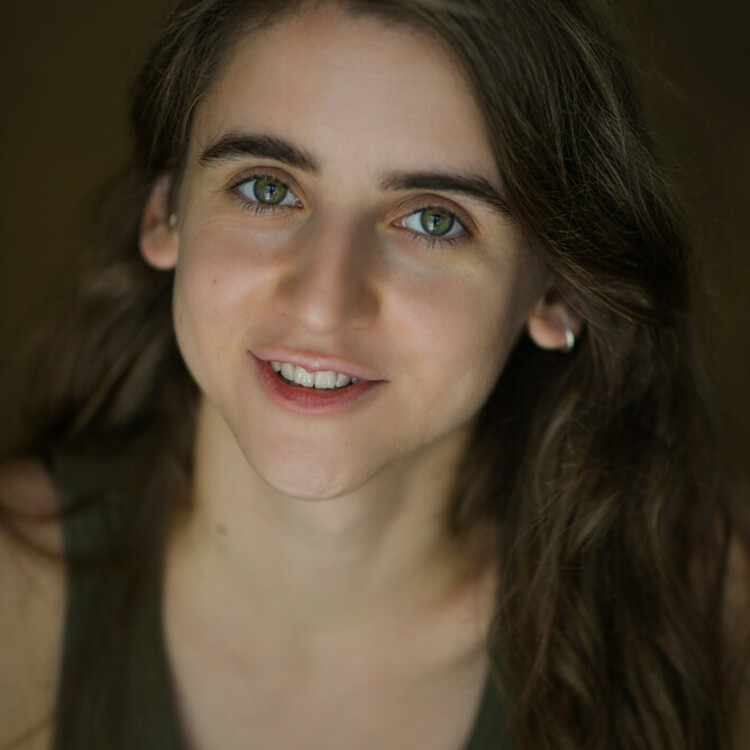
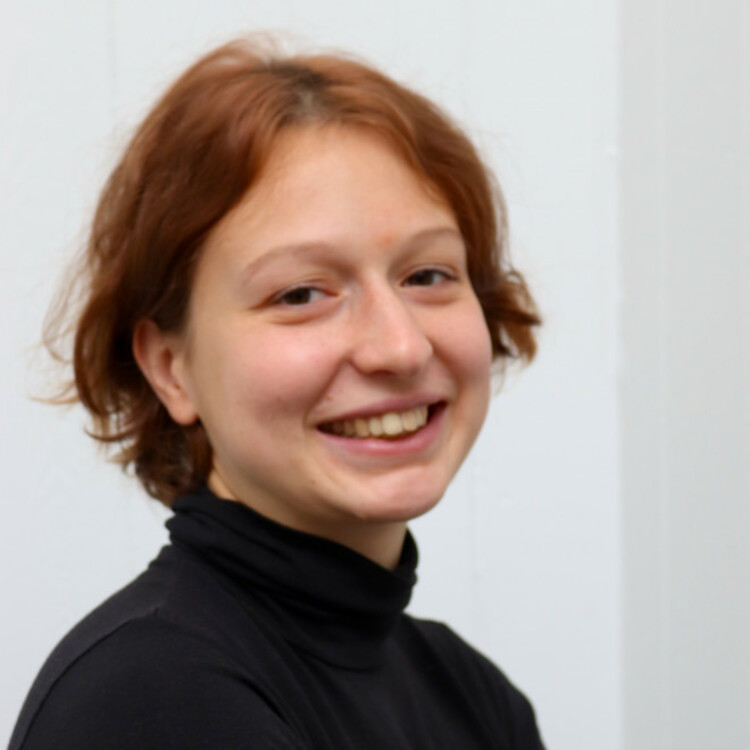
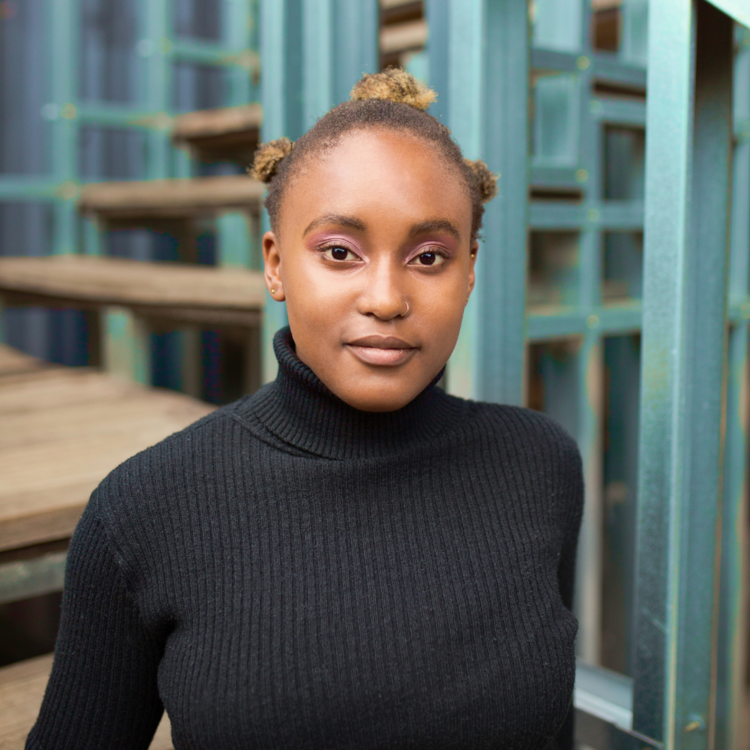

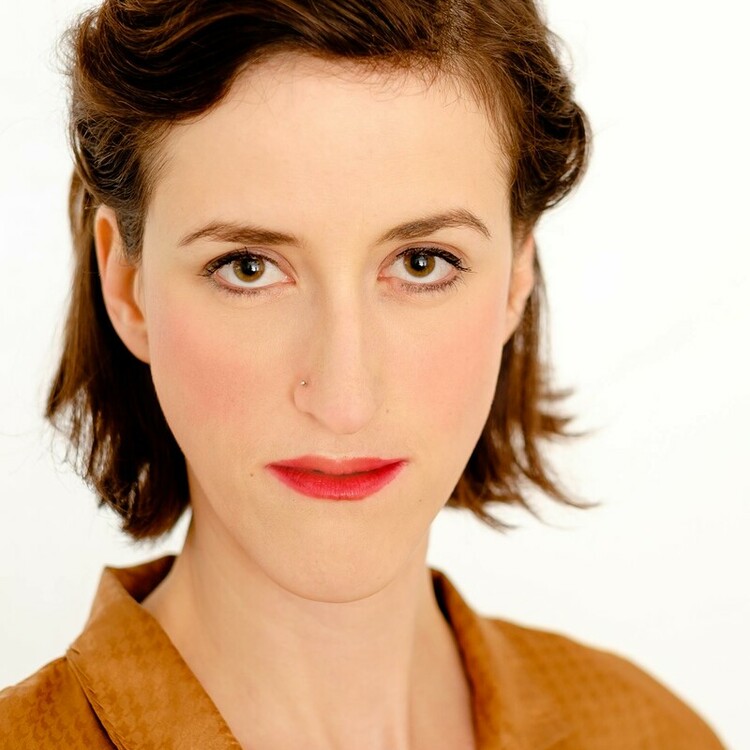
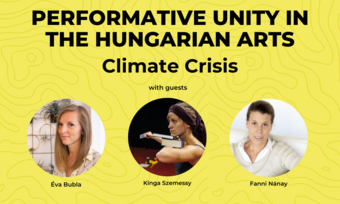





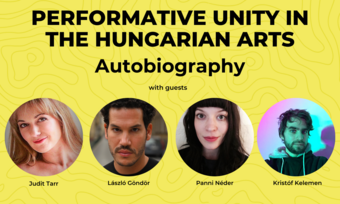




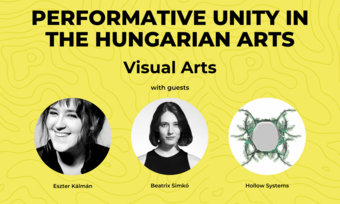



Comments
The article is just the start of the conversation—we want to know what you think about this subject, too! HowlRound is a space for knowledge-sharing, and we welcome spirited, thoughtful, and on-topic dialogue. Find our full comments policy here